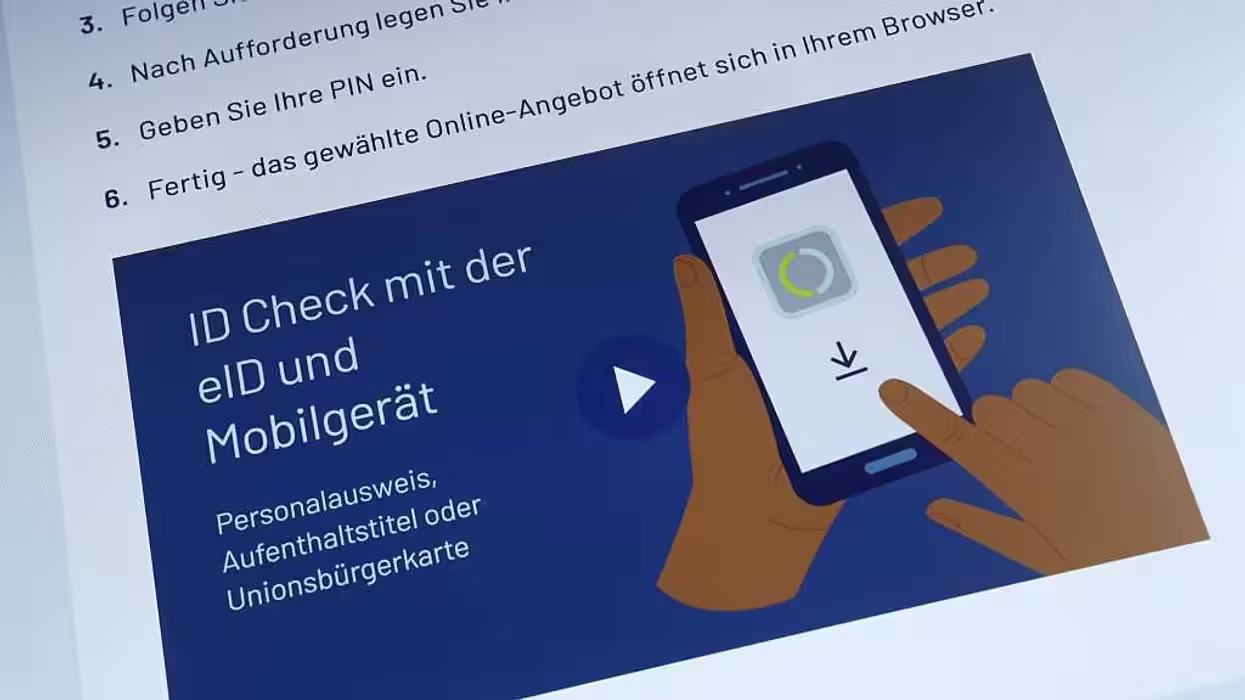
Photo by Sean Gallup / Contributor via Getty Images

The rest of the West is on the brink of wiping out online freedom. We're next in line.
“This is an Orwell nightmare coming to life right in front of our face. And no one’s flinching.” In a recent episode of his podcast, Joe Rogan raised the alarm about the onrushing global implementation of digital ID, singling out the over 12,000 U.K. arrests due to officially unsavory internet posts.
London states that the British digital ID will simply be used to “curb the prospect of work for illegal migrants, a significant factor driving small boat crossing.” For students of that old conspiracy theory standard the Hegelian dialectic (or the Problem-Reaction-Solution model, whereby the conspirator creates a problem in order bring about a previous unpalatable “solution”), this is solid gold. It’s textbook.
The good news? Polling of U.K. citizenry suggests resounding resistance to implementation of digital ID. Yet the U.K., along with governments around the world, seem to be less concerned with worn-out notions of rights and more interested in redoubling their efforts to establish digital surveillance.
If accomplished at the state level, it’s a short leap to full acceptance.
The September 26 U.K. government press release stating the intent to roll out digital ID touts similar measures established in Estonia, Denmark, India, and Australia. Even though the release suggests the U.K. needs digital ID for immigration purposes, the benefits of such a tool are different for each of the above countries. We can assume that once a tailored excuse for each region has been established and the ID rolled out, the rest of the pieces will fall relatively swiftly into place.
For the British, however, there is no clear answer to the issue of integration into the so-called EUID, the parallel scheme run by the European Union. It’s about centralized data collection and analysis. It will be shared to whatever degree and for whatever purpose government (or its corporate sponsors) deem necessary, and once again, it’s designed to coordinate across systems. Ecosystems. Ecosystems of finance and taxation, plus others cobbled together from salable health or habit data. All with zero guarantees about how this is handled in the future.
In Europe, an enormous rollup of private comms is a sneeze away, with the crucial firewall country Germany now wavering. The German government is poised to drop its free-speech stance and cave to the so-called Chat Control policy, driving representatives from the hugely popular chat app Signal to issue a stern press release: “Under the guise of protecting children, the latest Chat Control proposals would require mass scanning of every message, photo, and video on a person’s device, assessing these via a government-mandated database or AI model to determine whether they are permissible content or not.”
It’s estimated that 57 countries already have digital ID in rollout phase. Couple this with the 93 countries that have digital payment systems in place. And consider that 103 countries have installed cross-sectional, national-level, active data exchange systems installed. It isn’t a stretch to see how close we are, at a global level, to Rogan’s “nightmare.”
RELATED: Arizona’s AI policing tool threatens civil liberties

This nightmare has zombies too. Consider that all those monsters that the MAGA coalition ostensibly fought and vanquished are still pushing for digital ID, from international corporate behemoths like Cisco and Google to "non"-governmental organizations like the World Economic Forum.
Imagine digital ID is mandated. Algorithms coordinate with phone data. Everything is processed through one gov/corp-AI or another. Would the stock market be even a little bit legitimate? No. Would consumer information ever be reliable? No. Could checks and balances of any sort ever make it through bought politicians and corporations with access to every trend down to the minute? No. Most versions of digital ID seek to coordinate all personal information into a central, individualized hub available to government and, of course, corporate partners with government.
In America, Rep. Bill Foster (D-Ill.) has been, according to his own website, "one of the leading advocates in Congress for enhanced federal participation in digital identify ecosystems." What exactly would possess Foster to love digital ID, especially when its parameters are so uncertain and its anecdotal favorability rankings are so low? It might be worth examination. Patterns detectable elsewhere may appear.
In the U.S., digital ID has already been pushed at the state level. Twenty-one states have adopted some form of "mobile" (digital) driver's license, Real ID, and so forth. If accomplished at the state level, it’s a short leap to full acceptance. The Department of Homeland Security has already built, funded, and set into motion the Fusion Centers concept. Here we have the federal government vacuuming up (criminal and related) information from state, local, and county-level sources. Recall that the federal government is, by any standard, furiously divided. What seems fair to 50% of the nation today will not, in circumstances where incompatible ideologies and opinions are in contest, seem fair when a new administration takes over.
We’ll soon have to decide: Do we need digital ID today to crush cartel and domestic terrorist activity in the United States? With top-tier Trump backers like Oracle's Larry Ellison fully in favor of digital IDs, citizens may soon be asking whether American greatness in the digital age requires a greater sacrifice than they could have imagined.